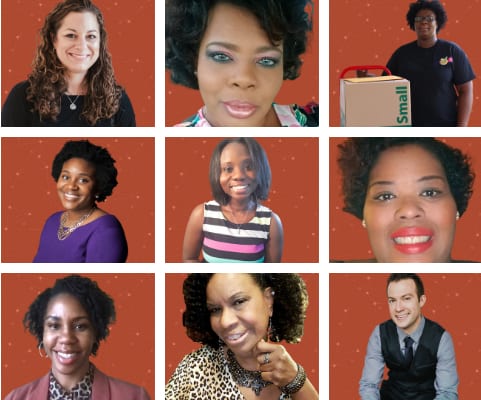
Early Risers Academy grads to pitch companies, compete for prize money
April 12, 2021
The winter 2021 Early Risers Academy general and tech cohorts will see 17 founders pitch their budding companies for prize money and support in the coming weeks.
The Early Risers Academy program is managed by Launch Dayton partner Parallax Advanced Research with funding from the Department of Defense Office of Economic Adjustment & Ohio Third Frontier’s Entrepreneurial Services Provider program.
“From Air Force and university research labs to urban kitchens and garages, innovation is a force in the Dayton region,” program manager KeAnna Daniels said. “Our diverse entrepreneurs are developing new technologies and processes, and we’re excited to offer these bootcamps to help them reach the world.”
The free, 10-week business-building program leverages Kauffman FastTrac coursework from the nationally-renowned Kauffman Foundation. Participants also receive pitch coaching and hands-on mentoring, weekly discussions with successful entrepreneurs and experts, & access to Dayton’s entrepreneurial ecosystem.
The tech cohort also explores an array of topics specific to STEM-focused entrepreneurship, such as prototype development; how to design to appeal to end users and for large-scale manufacturing; and financing pertinent to startups, such as how to secure seed and early-stage. It is helmed by Eric Wagner, Converge Technologies founder and chief strategy officer, and CEO of Converge Ventures, a high-tech start-up model that helps early stage companies fund, develop, and commercialize their products.
Each cohort will conclude with a virtual pitch competition.
The tech cohort will pitch Friday, April 16 at 12 p.m. Pitching entrepreneurs include:
- Yuxing Wang, founder of an as-yet-unnamed company developing next-generation solid state batteries for electric vehicles, aerospace and other applications;
- Blair Jackson, founder of Orison Corporation, commercializing a product line of light, portable electric vehicles;
- George Xiao, founder of Microcvd Corporation, developing a new process to 3D print metallic materials;
- Matthew Weltman, founder of LightHouse Avionics, developing an integrated network of UAV command and control systems for commercial use;
- Erich Zahn, founder of an as-yet-unnamed company developing a robotic chef that can mass produce meals;
- Michael Doran, founder of Innovative Laboratory Solutions, providing safe and efficient disposal of laboratory test tubes;
- Richard Lonado, founder of Defense & Energy Systems, LLC, developing a process for integrated sensors into printed molds;
- David Maurer, founder of Green Zero Energy, developing a mobile auxiliary power station to generate green energy.
The general cohort will pitch Thursday, April 22 at 5:30 p.m. Pitching entrepreneurs include:
- Kimberly Stevenson, founder of Golden Locket, an independent provider with the Department of Developmental Disabilities;
- Jehanne Dufresne, founder of WEW!, working to empower and encourage women;
- Brandi Washington, founder of Yes, We Deliver!, offering last-mile delivery services;
- Tonya Satchell, founder of BTNP Stem Toys, providing educational toys;
- Charmaine Webster, founder of Tinka’s Treats, an online bakery offering homemade pies;
- Matt Dunn, founder of U Experience, curating immersive travel experiences for small groups & brands;
- Danielle Simpson, founder of an as-yet-unnamed business specializing in charcuterie boards for events;
- Ariane Cook, founder of online retail business VIBEZ;
- Aaliyah Lovett, founder of Black On Purpose, a network for Black professionals.
In 2020, 37 entrepreneurs graduated from Early Risers Academy cohorts, including What’s the Biz founder Te’Jal Cartwright who graduated in spring 2020.
“I could not talk to investors before Early Risers Academy,” she said. “Now, when I’m in a conversation about business and they ask about projections or my business plan, I can give real answers.”
Sierra Leone, founder of Acacia Health & Wellness, graduated from the fall 2020 cohort.
“There is something to be said for working in an environment that is professionally supportive and culturally safe,” she said. “Authenticity was at the forefront. You didn’t have to explain or go underneath or hide or suppress.”




